Humanities & Social Sciences
CHUSS Holds 6th Annual Gerda Henkel Graduate Supervisors Retooling Seminar for Cohort 2022
Published
1 year agoon
By
Jane Anyango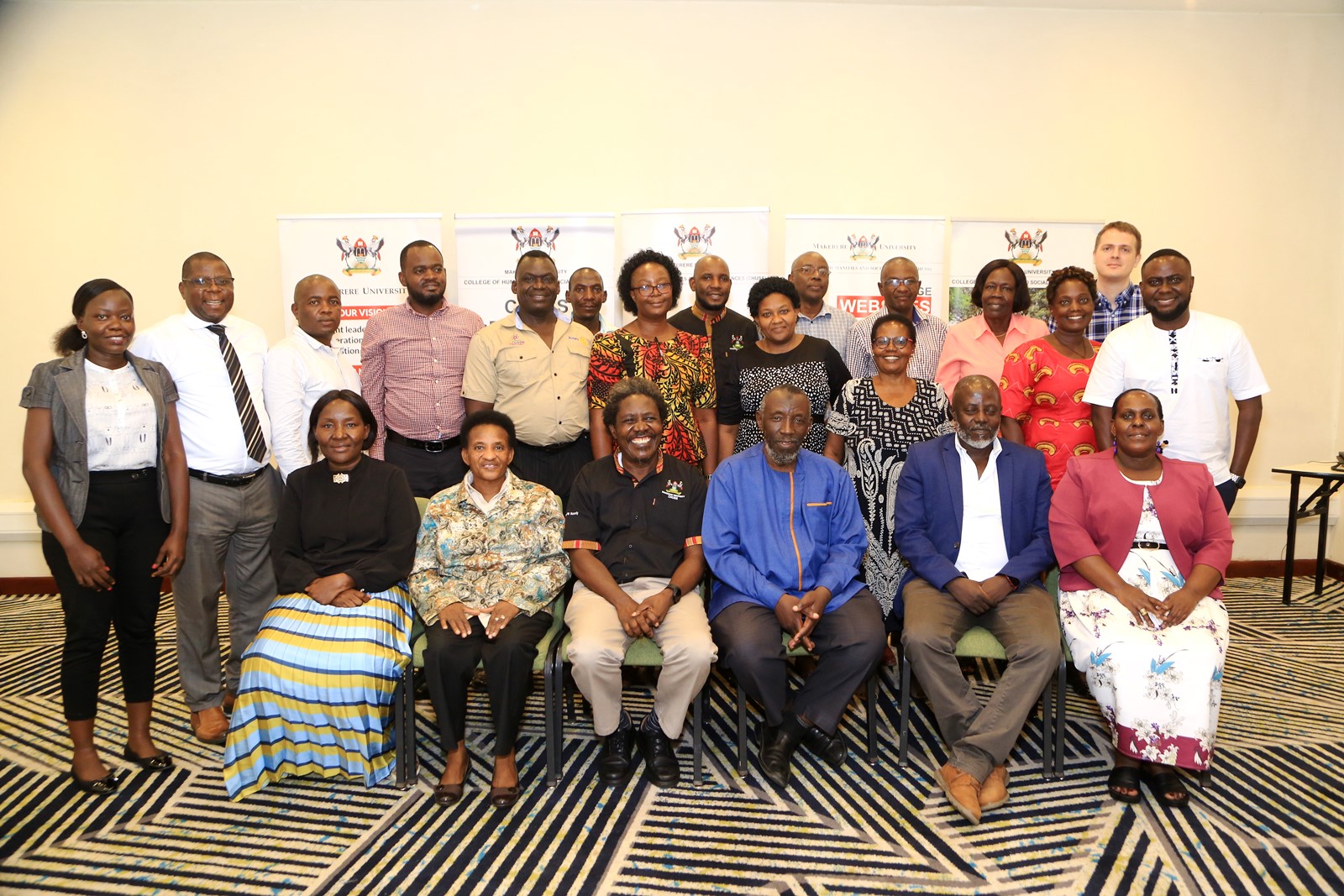
The important role of teaching and supervision and the fundamental competencies that ought to be developed in a successful postgraduate student may be affected by the supervisor-supervisee relationship and strategies used in negotiating the demands of teaching, supervision, administration and research
Currently universities are expected to churn out a cadre of graduates with strong research credentials and the rigor of a PhD programme is best placed to produce such people. Yet, many obstacles to the recruitment of qualified candidates into such programmes have been identified; principally the length of time spent on training, the human capacity and infrastructural gaps.
In addition, at the time of commencing PhD, the candidate is frequently an expert or even a leader in their own discipline. It is often difficult to identify a supervisor who actually knows more about the field than they do. Furthermore, they are mature students, with much life experience and a self-belief which substantially alters the power relationships between the student and supervisor.
It is against this background that Graduate supervisors and coordinators, Deans, Heads of Departments and administrative staff from the College of Humanities and Social Sciences (CHUSS) on 23rd February 2023 converged at the Hilton Gardens Kamwokya to reflect on their roles and expectations as the university strives to became research led.
This was the sixth supervisors retooling seminar organized under the auspices of the CHUSS Gerda Henkel PhD Funded program for cohort 2022. The supervisors were called upon to be parental, empathetic and to use integrated approaches of supervision. This is not only important for a rubust and timely mentorship for graduate students and improving their completion rates but also safeguarding the image of the university and improving the university ranking.
The seminar was facilitated by long serving senior academics who shared their expertise and experiences in teaching at Makerere University. Prof. Abasi Kyimba deliberated on the Approaches of Graduating Training in CHUSS and Prof. Edward Wamala on types of PhD supervision while the Deputy Director(Administration and Graduate Training) Assoc. Prof. Julius Kikooma covered the aspect of Policies and Processes of Graduate training at Makerere University.
Associate prof. Grace Kibanja gave insights on the Ethical considerations in PhD Research while Dr. Edgar Taylor (Supervisor) and Dr. Deo Kannamwangi (a supervisee) from Kyambogo University shared their personal experiences on PhD supervision at Makerere University.
While opening the workshop, the Principal CHUSS represented by her Deputy Associate Professor Eric Awich Ochen commended the project coordinators for this initiative and supporting the university quest on focusing and improving graduate training.
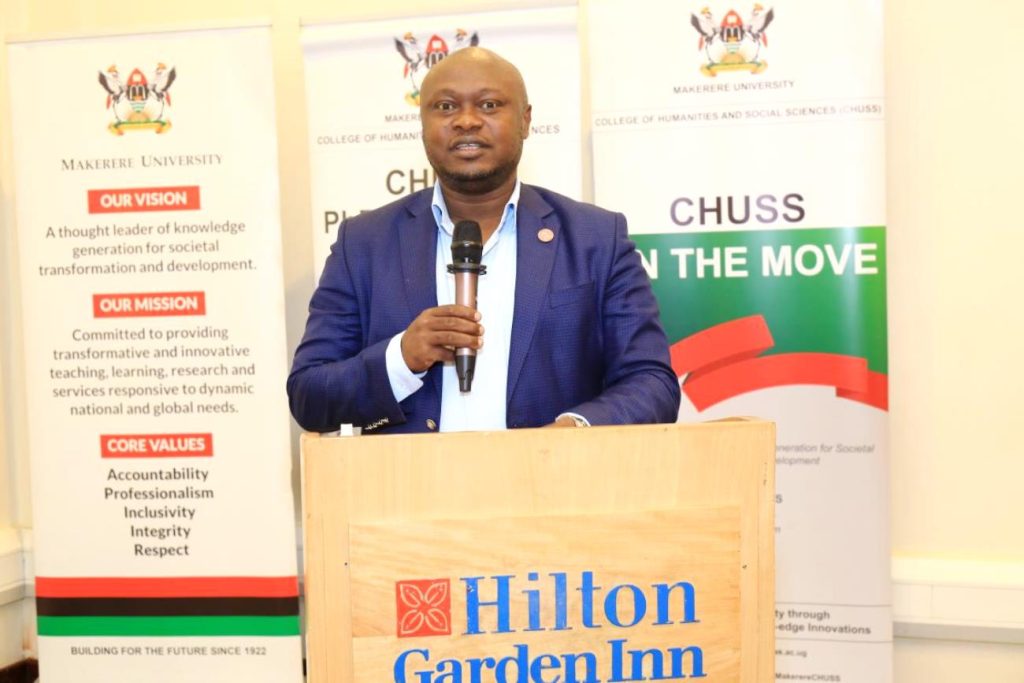
“It is important from time to time to reflect on what our role is and what is expected of us. The university is in the process of becoming research led and we have made a stride already. For the third year running, we had over 100 PhDs which is very big for Makerere University and we all know that CHUSS has made a contribution to this.
In the recent graduation of February 2023 we had 25 PhDs, the previous one we had 22 and in 2021 we had 21 PhDs. It is our hope and request to you our supervisors and the seniors here including all of us to achieve more”, The Principal urged.
Dr. Awich appreciated the Gerda Henkel Foundation for supporting PhD training acknowledging that it has contributed significantly to the huge numbers of PhDs in the college and university as a whole .The Principal further commended the PhD training through the cohort system as efficient.
“Many colleges have funding from donors but I think CHUSS is a very good example in terms of how this cohort system has worked out. I would like to encourage the Deans and Heads of department to ensure and to make it easier for our students to go through the process. Our customers are the students so if we don’t make it easy for them, how will we attract more students”, Awich advised.
While closing the workshop the Dean School of Liberal and Performing Arts Assoc. Prof. Patrick Mangeni appreciated the college leadership, project committee members and staff for organizing a series of the retooling seminars.
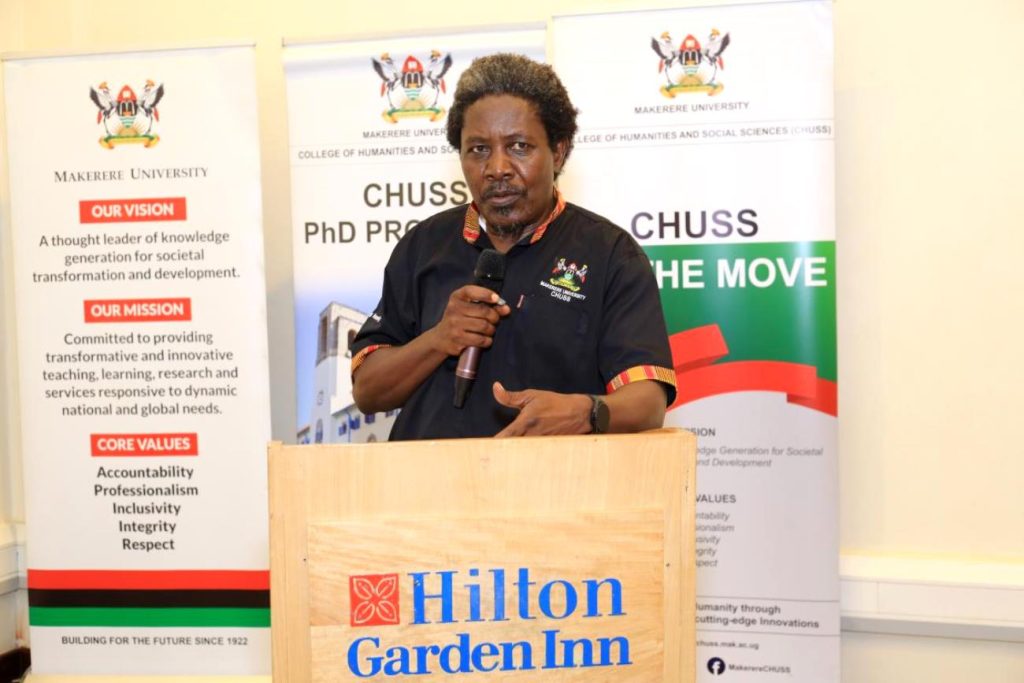
“Our seniors in this area we also thank you so much. I know year in and year out, we do have these activities and there is a difference we are noticing on the ground. There is overall improvement though there are areas we still have to work on. In these particular workshops we get knowledge, feedback, which is very critical”, Prof. Mangeni said.
Prof. Mangeni thanked the participants for the open discussions and expressed the need for project coordinators to deliberate on getting exit meetings with graduate student, to fill forms before leaving so that the university can draw on their feedback and dedicate sessions for supervisors to improve on graduate training.
“We have to guide these students on what to do but these are also human beings. At times a person you are supervising is married. Ideally they have come up to study and get a degree and that’s what you should help them with. We need sessions to prepare our students,” the professor said.
Mak CHUSS Gerda Henkel PhD Scholarships
CHUSS projects’ Coordinator Dr. Edgar Nabutanyi said the college has been retooling supervisors for the last six years. He congratulated senior staff who have supported the college initiative by sharing their experiences and knowledge in regards to mentorship and supervision.
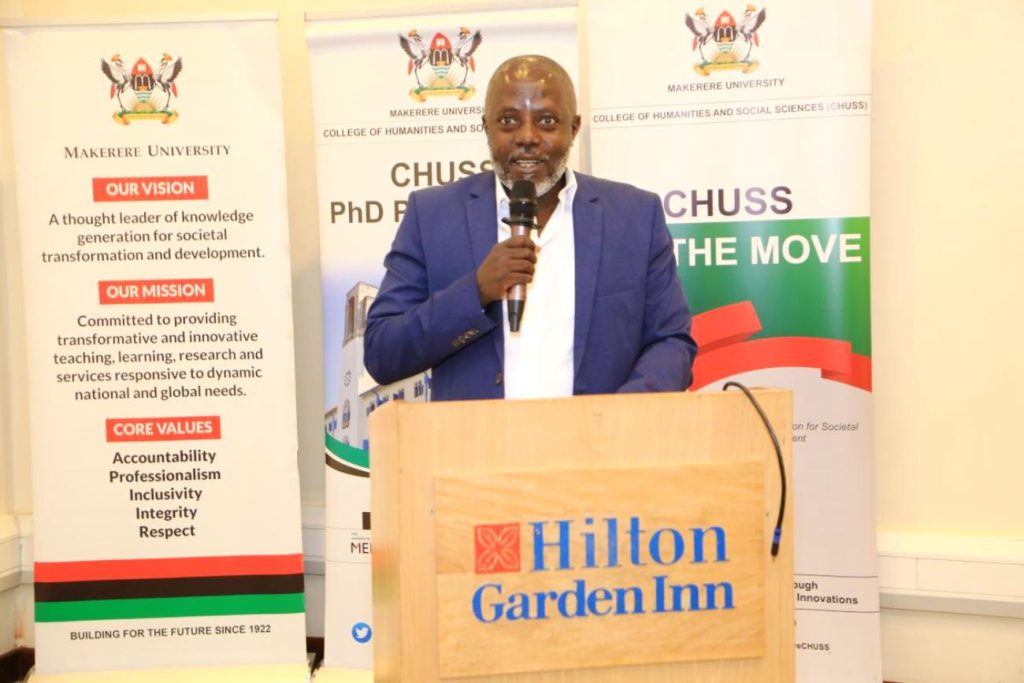
Gerda Henkel Foundation he said, is a humanitarian foundation based in Germany which, on African continent has funded research and graduate students through Lisa Maskell fund since 2009 -2010 when they partnered with the University of Stellenbosch under a premiership program which was called Partnership for Africa’s Next Generation of Academics (PANGeA). PANGeA is a collaborative network of leading African universities developing research capacity and confidence in bringing African expertise to Africa’s challenges. The universities involved in the PANGeA network are the University of Botswana, the University of Dar es Salaam in Tanzania, the University of Ghana, Makerere University, the University of Malawi, the University of Nairobi in Kenya, Stellenbosch University, and the University of Yaoundé I in Cameroon.
In a bid to diversify in 2015 PANGeA got into contact with Prof Edward Kirumira who had was the then chairperson and Makerere University was added in November 2016.
Dr. Nabutanyi reported that, the 1st cohort (2017) have all graduated with a PhD in humanities of Makerere University except one candidate.
In 2018, CHUSS admitted the 2nd cohort (10 students) and are in various stages of completion but was greatly affected by the pandemic. In 2019 the college had the 3rd cohort of 10 students, in 2020 another cohort of 8 students and the 2021 cohort that had 10 students.
Dr. Nabutanyi also reported that not only has the Gerda Henkel support made a community of scholars in the college, but, has also made CHUSS a vibrant intellectual community.
“By the end with project, CHUSS would have educated around 57 PhD students. The funding from Gerda Henkel has been instrumental because it has supported in a significant way the departments in the college. The college has also benefited in terms of infrastructure. It has also contributed to the intellectual life in the college, convened so far seven symposiums, the CHUSS conversations and also seminars”. He added
He asked the staff and supervisors to treat the funded students as university students without special treatment pledging that the college and coordinating office was open to the supervisors to interact in any way possible in a manner that can help facilitate the training.
You may like
-
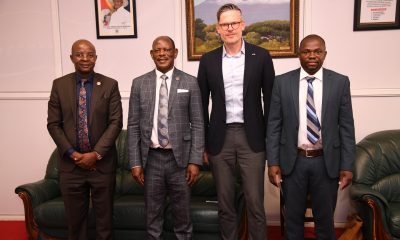

Building Resilience: Makerere Leads Climate Finance Training for Finance Officials
-
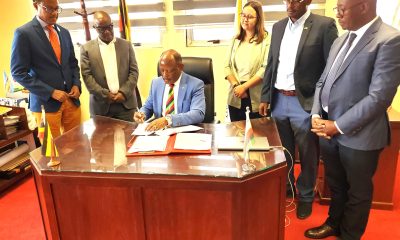

Mak, Oregon State University Sign Cooperation Agreement
-


ENABLING Project Social Scientist Positions: (1) Team Lead (3) Research Associates
-
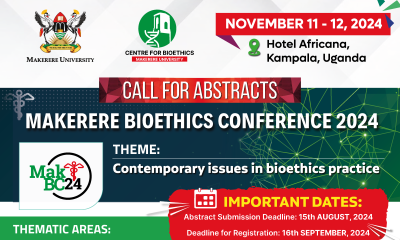

Call for Abstracts: Makerere Bioethics Conference 2024
-
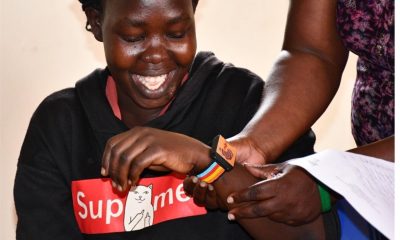

Mak Researchers Partner with Safe Bangle Technologies to Roll out a Real-Time Domestic Violence Reporting Bracelet
-
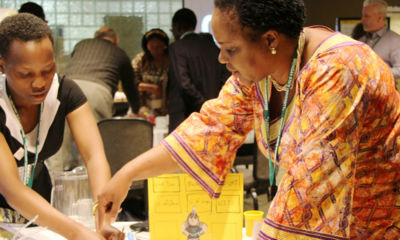

African Futures Research Leadership Program: Cohort 5 – Call for Scholars
Humanities & Social Sciences
Mak develops new model to aid teaching of Maths in Lower Secondary Curriculum
Published
4 days agoon
July 23, 2024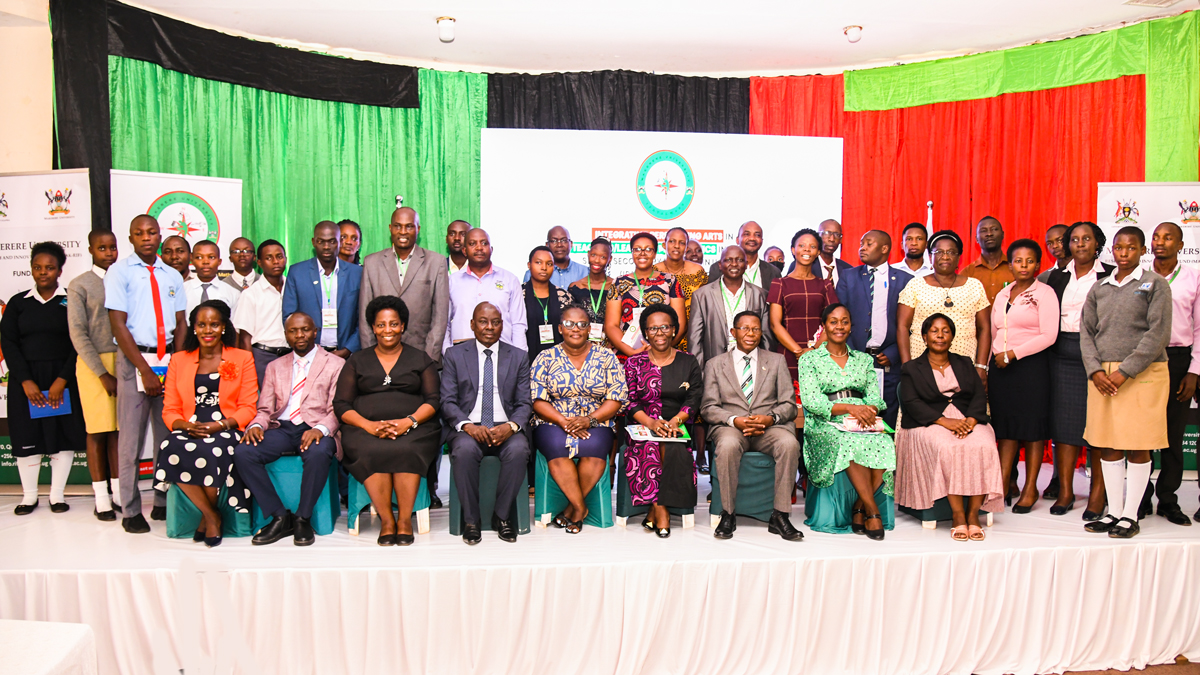
Makerere University has developed a new Mobile Application to aid the teaching of Mathematics using performing arts in Lower Secondary Curriculum.
“Mathematics is very important in life. The Government Policy on Science Education declared mathematics compulsory for lower secondary school learners as the driver of all sciences. However, the performance of students in mathematics is inadequate. Most students fear mathematics. Others believe mathematics is very hard,” said Prof. Sylvia Antonia Nakimera Nannyonga-Tamusuza, the Principal Investigator of the project.
She noted that despite numerous government interventions, including improving teachers’ conditions, teaching facilities and infrastructure, learners’ performance of Mathematics is still not impressive.
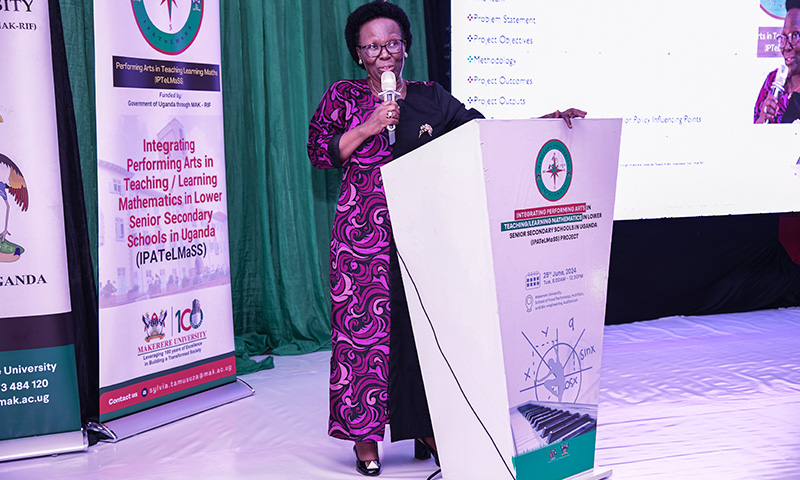
To address this problem, Prof. Nannyonga-Tamusuza working with a team of researchers from Makerere University and the National Curriculum Development Centre (NCDC) focused on using the power of performing arts, which includes music, dance, drama, story-telling, and visual-audio arts to make the studying of mathematics more captivating and enjoyable.
The research team developed the MusickingMaths App to enhance the teaching of Mathematics through music. The App is an interactive digital platform between the learner and the knowledge facilitator to support the learners in creating songs about mathematical concepts learned.
Prof. Nannyonga-Tamusuza explained that the created songs are shared with the knowledge facilitator for evaluation and feedback on the learners’ performance of the mathematical concepts.
She made the remarks during the dissemination of research findings of the project titled Integrating Performing Arts to Enhance Teaching/Learning Mathematics in Lower Senior Secondary Schools in Uganda (IPATELMASS) at Makerere University on June 25, 2024.
Prof. Nannyonga-Tamusuza explained that the new model is an intervention to improve the teaching/learning of mathematics in lower secondary schools in Uganda. She pointed out that IPATELMASS is a participatory action-based research project whose main objective was to inform the development of an Integrated Performing Arts-Mathematics Teaching Learning (IPAMTeL).
Funded by the Government of Uganda through the Makerere University Research and Innovations Fund (Mak-RIF), the collaborative venture brought together researchers from the performing arts and mathematics experts from Makerere University, the National Curriculum Development Centre, National Teachers’ Colleges and mathematics teachers from Mubende.
“This Project speaks to Uganda’s National Development Plan IV, which attributes the poor economic performance to the limited application of science, innovation, and technology,” Prof. Nannyonga-Tamusuza elaborated.
The findings of this research, which was conducted using learners from Mubende Army Secondary School and Kitenga Secondary School in Mubende District, indicate that learners improved in comprehension, critical-thinking skills, concentration span, and memory retention of mathematical concepts and principles.
Other outcomes include improved understanding: learners were better at comprehending mathematical concepts through visualisation and experiencing abstract ideas through performance and dramatization, learners improved other intrinsic values, such as teamwork, communication, problem-solving, and tolerance.
Prof.Nannyonga-Tamusuza told participants that the learners developed positive attitudes towards Mathematics.
“Learners’ attitudes shifted, making them more positive and open to learning mathematics,” Prof. Nannyonga-Tamusuza added.
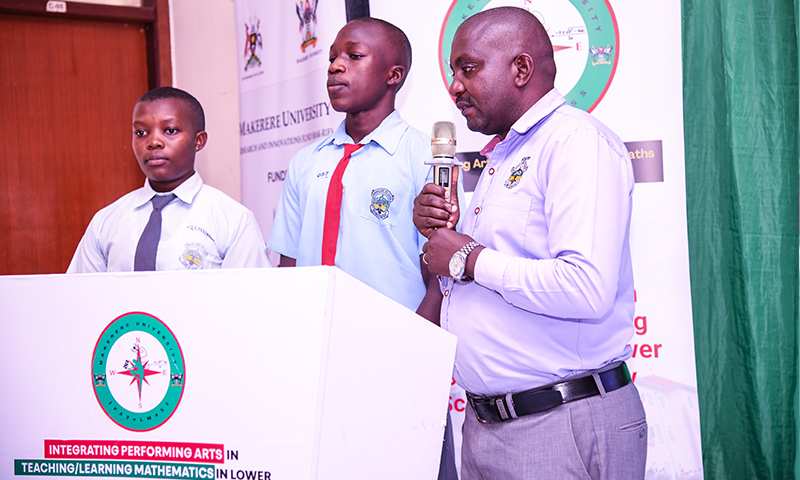
This was re-affirmed by the learners from Mubende Army School who testified that their participation in the research project completely changed their negative perception about mathematics. “Participating in the Makerere University project proved to us that mathematics can be taught anytime (in the morning, afternoon and evening hours). Previously, we thought math was so hard, that it could only be taught in the morning hours.”
Consequently, the learners from Mubende Army School appreciated Makerere University for integrating performing arts into the teaching of math, which has made learning enjoyable.
The research team came up with a number of recommendations including; the need for teacher training and professional development and specialised training for teachers to integrate performing arts into mathematics instruction effectively. As such, resources and funding must be allocated to professional development programs that provide teachers with the necessary skills and knowledge.
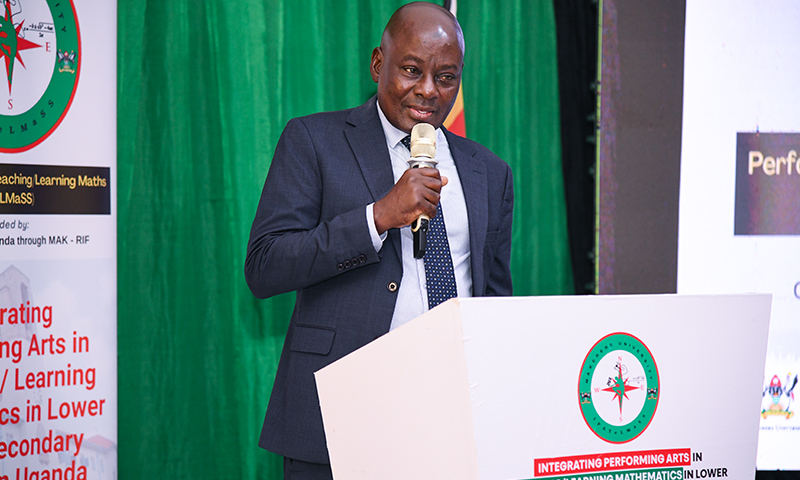
Additionally, researchers recommended: further research on how student learning and achievement can be assessed or evaluated in arts-integrated mathematics education, research and development; the need to support ongoing research and evaluation of the effectiveness of arts-integrated mathematics education and community engagement; as well as policies that encourage partnerships between schools, arts organisations, and community stakeholders so as to enhance arts-integrated education.
The Principal, College of Humanities and Social Science (CHUSS), Prof. Helen Nambalirwa Nkabala who represented Makerere University Vice Chancellor, Prof. Barnabas Nawangwe appealed to the Government of Uganda to provide more research funds saying times have changed due to technological advancement.
Prof. Nambalirwa Nkabala proclaimed that the launch of the model that integrates performing arts into the learning of math, was testimony that both the sciences and humanities can work together to make the world a better place.
She commended Prof. Nannyonga-Tamusuza and the research team from the College of Humanities and Social Sciences for taking on a multi-disciplinary approach to research that brought on board scientists, mathematicians, as well as partners in the education sector namely the National Curriculum Development Centre and the schools.
She appreciated the research team for coming up with a solution to address the inadequate performance of students in mathematics.
“With research that seeks to improve the studying of mathematics, Makerere University is fully endowed to make contribution towards the development of Uganda,” Prof. Nambalirwa Nkabala stated.
Launching the IPAMTeL model, the Chief Guest Hajji Ismael Mulindwa, Director of Basic and Secondary Education at the Ministry of Education and Sports applauded Makerere University for taking the lead in solving a national problem.
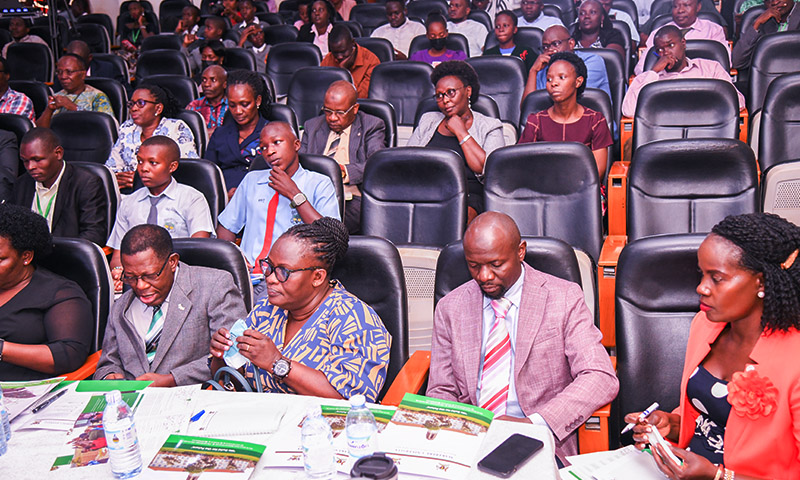
“I encourage our schools to emulate Makerere to spice up mathematics,” he guided. “I appeal to researchers to do more research in the education sector so as to inform policy.”
Hajji Mulindwa hailed the University Management and the Grants Management Committee for putting the Makerere University Research and Innovations Fund to good use.
On behalf of the National Curriculum Development Centre, Dr. Bernadette Nambi, the Director Curriculum Review and Instructional Material Development said the model will not only enhance teaching in the lower curriculum, but also contribute to holistic learning. She noted that the model makes the student the centre of learning and helps teachers to bring mathematics closer to the learners through making it easier for learners to remember concepts.
The Academic Registrar of Makerere University, Prof. Buyinza Mukadasi implored the different units at Makerere University to work together to bring the best out of each discipline. “This is the away to go. I believe the time is right for the different departments to work together,” Prof. Buyinza Mukadasi said.
He appealed to the university lecturers to invest more time in mindset change and create awareness about the need for the same among the teaching class and community at large.
Humanities & Social Sciences
CHUSS Biannual Newsletter Jan-Jun 2024
Published
2 weeks agoon
July 12, 2024By
Jane Anyango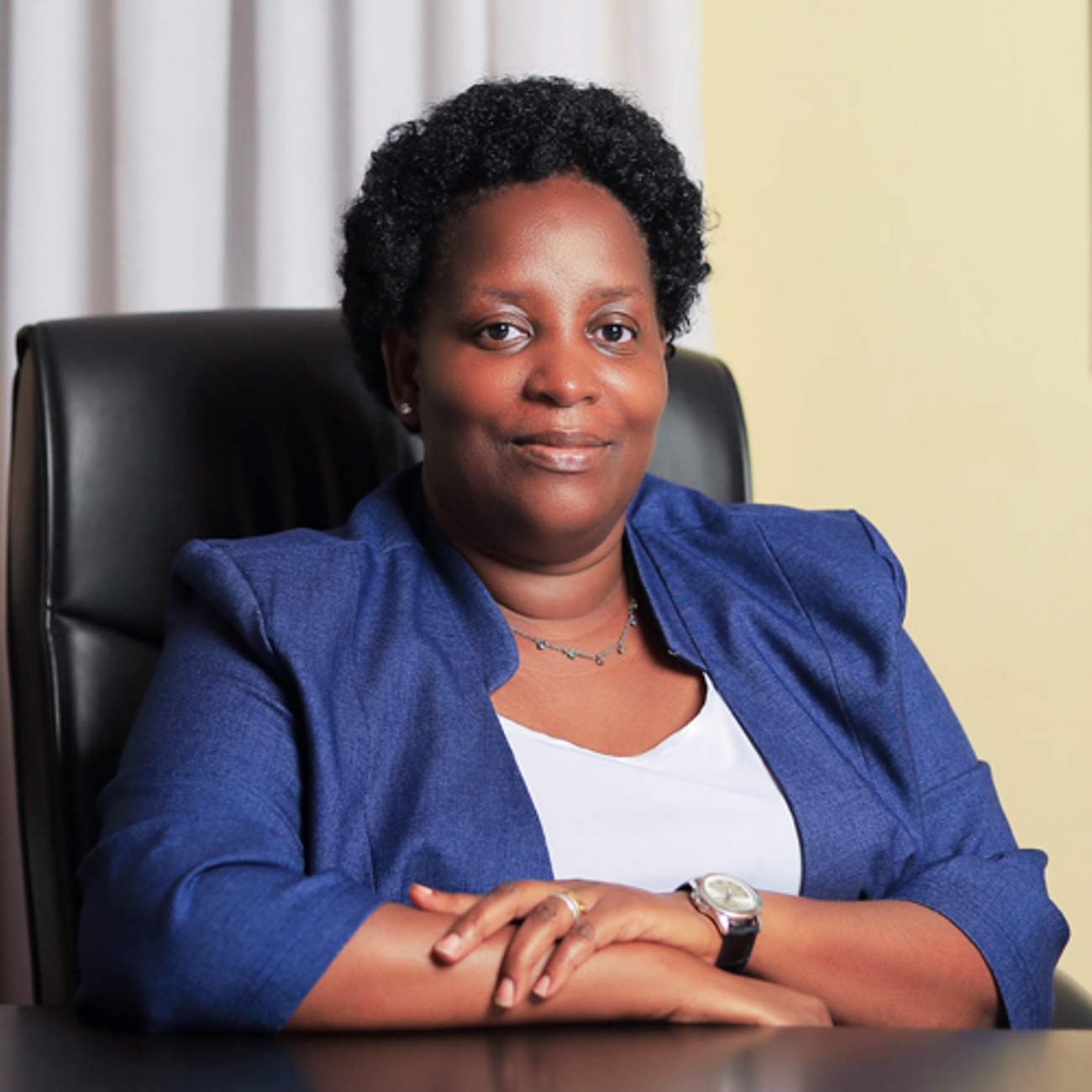
Welcome to this edition of the CHUSS Bi-Annual Newsletter. The issue highlights major activities that have unfolded in the college between January and June 2024. It covers major thematic areas of Teaching and Learning, Human Resources, Knowledge transfer and partnerships.
Assoc. Prof. Helen Nambalirwa Nkabala
PRINCIPAL
Humanities & Social Sciences
Prof. Josephine Ahikire Hands Over CHUSS Leadership to Assoc. Prof. Helen Nkabala
Published
2 months agoon
June 5, 2024By
Jane Anyango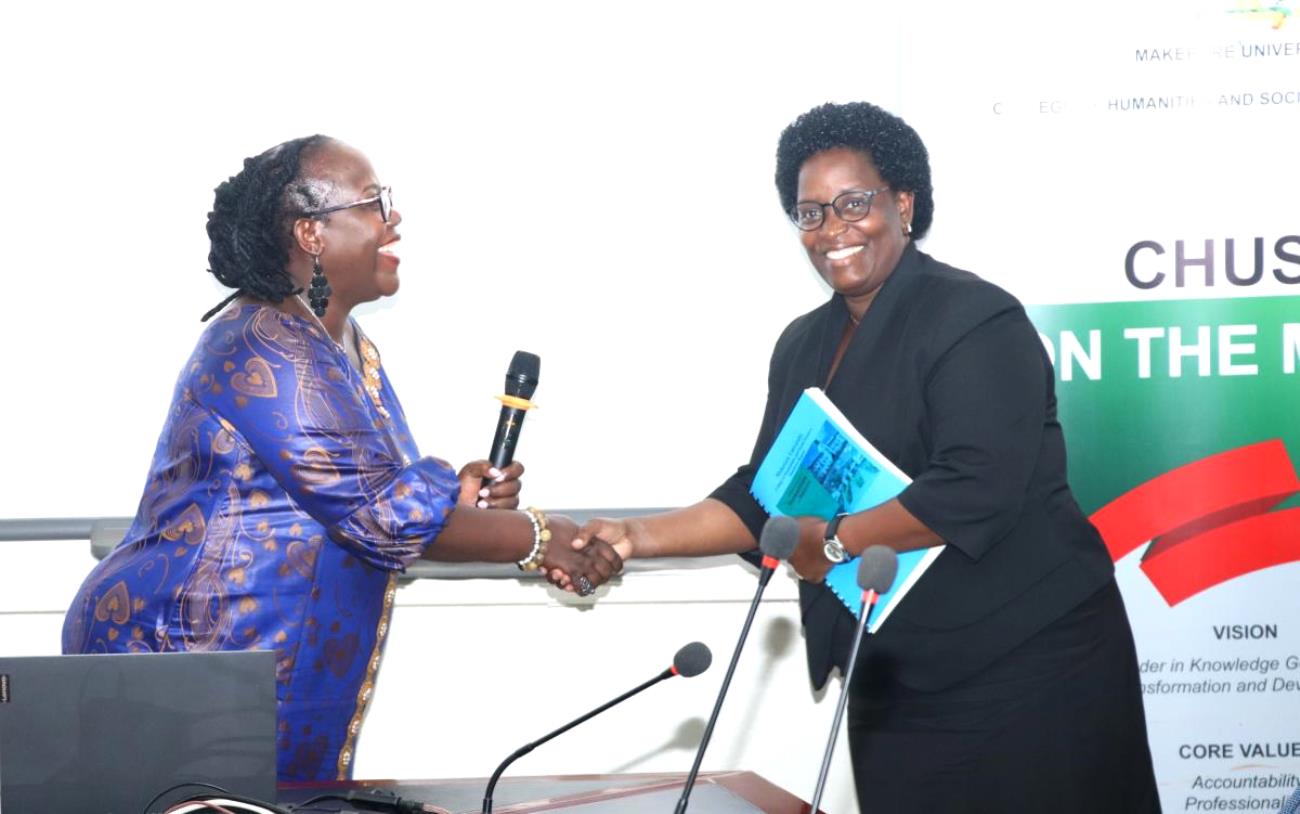
“As outgoing Principal of the biggest college, the most vibrant college, the college with the power of the word, the college with the power of language, the college with the power of vibe, I hereby hand over to you Professor Helen Nkabala Nabalirwa..”
“I extend my congratulations to Prof. Helen Nkabala, the incoming Principal and I pledge full support in her new position, so that at CHUSS, we remain on the move”.
That was Prof. Josephine Ahikire message as she handed over the instruments of power to the newly elected Principal for the College of Humanities and Social Sciences (CHUSS) Assoc. Prof. Helen Nambalirwa Nkabala on Friday 31st May 2024. Nkabala pledged participatory leadership and assured attendees that CHUSS will continue to excel.
The afternoon handover over ceremony held in the College Smart room was witnessed by the University Secretary and Director Human Resources represented. Prof. Nkabala’s family (mother, uncle and sister, her spouse Mr. Nkabala) witnessed the occasion. The Principal College of Natural Sciences Prof. Ireeta Tumps, Head GAMSU Prof. Sylvia Nanyonga Tamusuza, staff from Makerere University staff tribunal, Prof. Amanda from CEDAT, also graced the occasion. Members of CHUSS management and staff including Deputy Principal Dr. Eric Awich, Deans, Heads of departments, coordinators, support and administrative staff attended the ceremony.
I have enjoyed my tenure says outgoing Prof Josephine Ahikire
Prof. Josephine Ahikire said, CHUSS has created a cohort of leaders especially women to take it on.
“I have truly enjoyed my tenure as Principal and I send my appreciation to my Deputy Principal Assoc. Prof. Eric Awich, the Deans and heads. We delivered as a team right from the top to the last person. Now that public universities are being run as government departments Prof. Ahikire called for collaborative spirit from all administrators, college and schools and departments to be able to deliver” .
Ahikire paid special recognition to Makerere University top management for their unwavering support and for creating enabling environment for members of CHUSS to deliver what they pursue as their mantra, CHUSS on the Move.
“ I learnt one thing from the current Vice Chancellor that not all people need to line up to have a document signed. So, I removed some of those benches from the Principals corridor. Not all people have to sit and wait for a travel form to be signed”, she said.
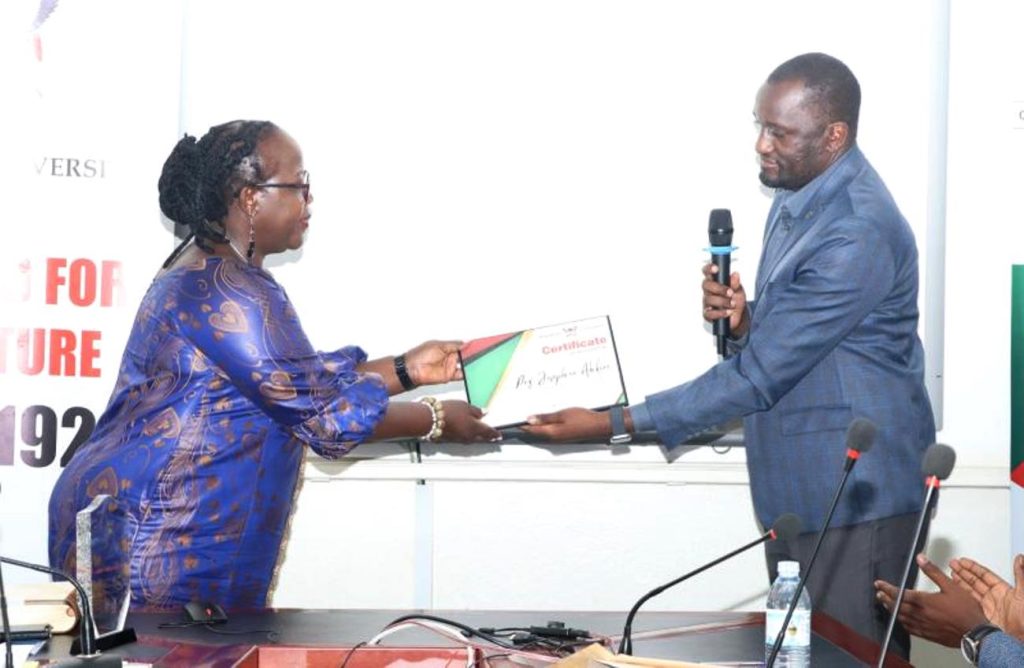
She also extended gratitude to the donors who have supported the college especially those supposedly unmarketable fields around the humanities and social sciences. She noted that as the rest of the donors pursue the marketable fields along the neoliberal agenda, the soul of humanity is falling apart. She pointed out the Mellon Foundation and the Gerda Henkel Siftung for being at the fore front and whose funds have been used to create vibrancy at CHUSS.
Giving an overview of her hand over report, Ahikire said the role of the Principal is guided by the Universities and Tertiary Institutions Act and the College statute whose functions are stipulated in there. CHUSS, she said, is one of the biggest units of the university offering the oldest disciplines which provide the key for unlocking the human potential for development.
In the report, the Professor highlighted human resources status in the college comprising 11 prof. 26 associate professors 44 senior lecturers, 87 lecturers and 70 Assist lectures, 26 administrative staff and 52 support staff noting that, the college was still bottom heavy with more assistant lecturers than lecturers.
The report also indicated the college assets in terms of office equipment, furniture and computers mostly acquired through projects, subvention development fund or furniture and fittings.
The report further highlighted the college wide projects in terms of how they operate through the Principals office, stores and assets register, the budget performance, ledger for each project, the project balances and the cohorts of PhD training.
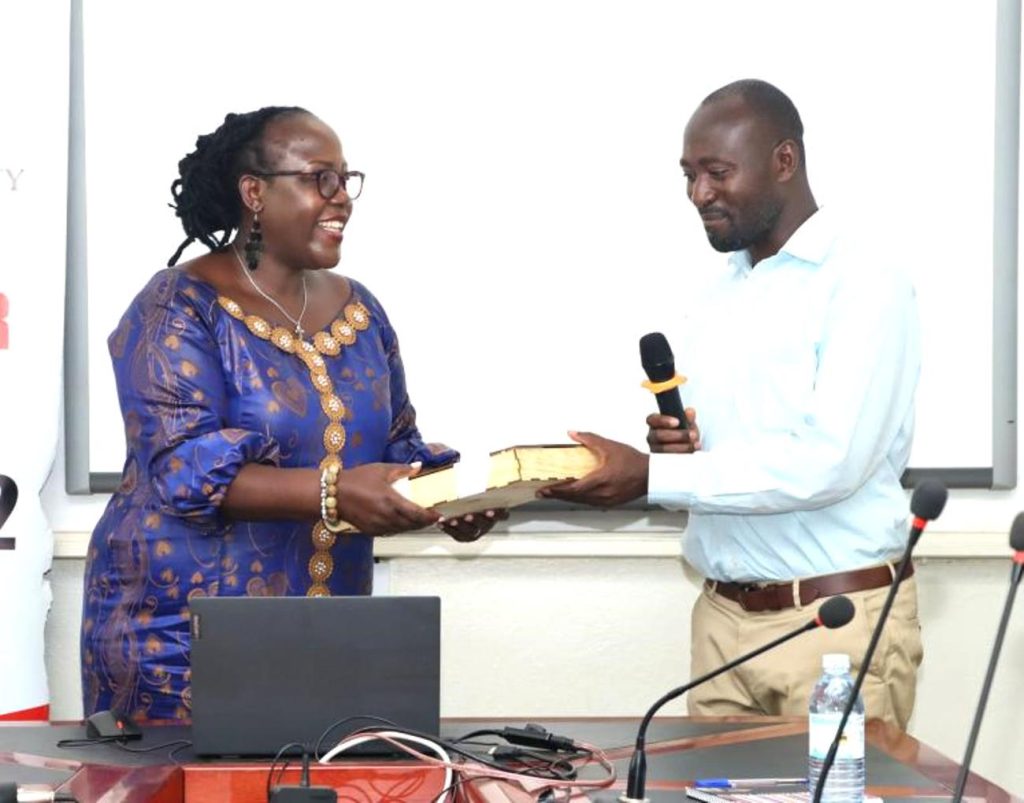
Major accomplishments
Prof. Ahikire reported that in the recent years, the college made progress in terms of staff promotion and most were still in the process . “In the last three years, a total of 87 members have been promoted. Six professors, nine associates, 35 senior lecturers, and 37 lecturers”.
She said, the college has one of the biggest student population in the university adding that, there has been improvement in terms of graduate output. .
“In the last graduation, we had 30 PhDs. I have put the graduation trends, especially for graduate programs, and the fact that we have really improved, means that supervision level has improved, the processing of examination has also improved, and the processing of results has also improved. And that is something that everybody in this room can actually own.”
Notably, she also reported that the college was able to pilot a students’ management system.
“When I came into office, you’d ask this student, what is the progress and you’d never know how to track. So as of now, at the touch of a button, you can know that if this student submitted a thesis or a dissertation, this is where it has reached”, she explained.
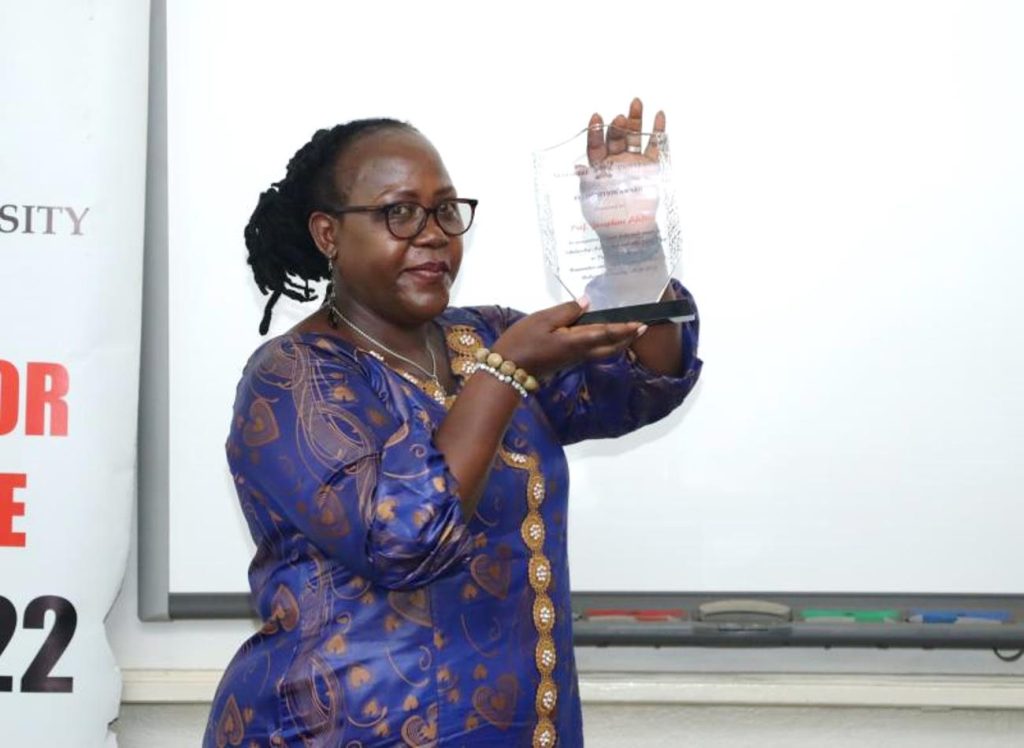
Among the challenges, Prof. Ahikire highlighted the limited teaching and office space, accreditation of courses, limited human and financial resources including grant and research portfolio,
In terms of the issues to consider, Ahikire stressed the need to pursue the research- led agenda and graduate training, and expressed the need for the academic board to be facilitated to serve as a driving force behind CHUSS research agenda. Ahikire called upon staff to first have the research agenda, and then mobilize resources and have Graduate training as a pivotal aspect of research and to continuously upgrade the infrastructure.
Prof. Nkabala hails Predecessor for laying foundation. Assures that CHUSS will Continue to Excel
Assoc. Prof. Nkabala appreciated the outgoing Principal for laying the ground.
“A very good afternoon, friends. It is with a lot of humility that I stand before you this afternoon, taking over what that is already done. I would like thank my predecessor, who has just handed over, Principal Emeritus Professor Josephine Ahikire, Thank you for laying the ground, and thank you for handing over. Friends, I would like to start by acknowledging the core people who make what CHUSS is”. Nkabala aknowlegded.
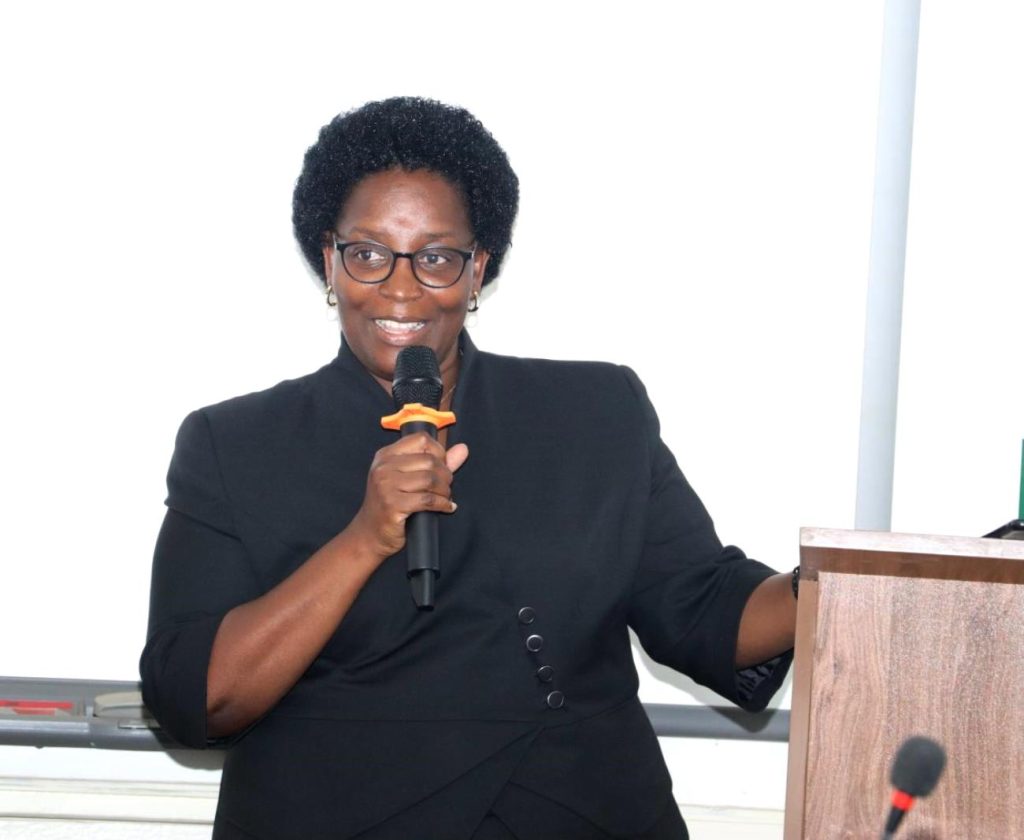
Nkabala also recognized deans, heads, administrative, support and all staff for leading CHUSS to where it is assuring them that college will remain on move.
“ I want to give you my assurance that while I know that change is difficult, I cannot lie to you that there is no change. We have changed and you have seen that. But CHUSS will continue to excel with your support. What we did, is to change the driving seat, but you are the engine”, Prof. Nkabala assured and remarked that she counts on the Professors to offer support and guidance.
“So it is up to us, me and you and Prof. Ahikire as one of the critical Professors and others. I want to pay allegiance and also assure you that for CHUSS to go forward, we are looking up to you to offer academic leadership. So when we come please accept us. You rightly noted that e are bottom heavy, I will continue from where you have stopped and do my best”. Nkabala promised adding:
“I will reach out to all the leaders and I want to assure all the staff in CHUSS, that I will reach to each and every one of you. So, dear deans present, heads of departments, I will request that we have an entry meeting in each and every school and department. We are 16 and we shall talk together to see how we carry on this work that I start today”, she asserted.
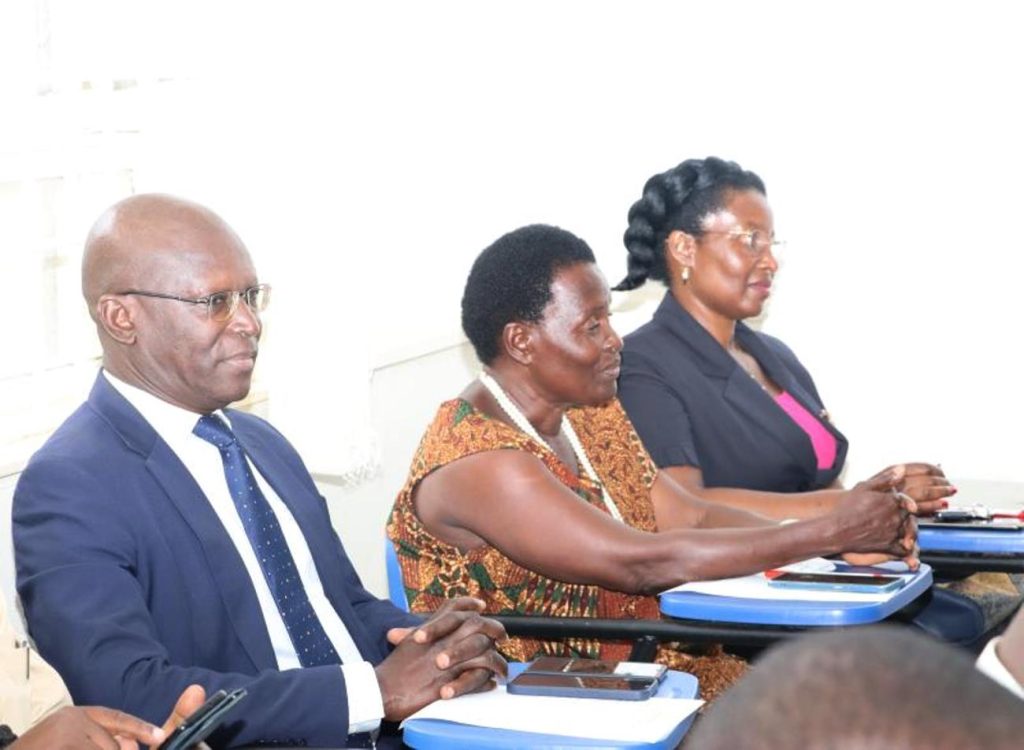
Nkabala also called on the office of the university secretary for support.
“I was excited when I heard the US pledging total support, underline the word total support, because Professor Ahikire said, you give them funds for one course, yes, yet we have 37 programmes. So, when I knock on your door on Tuesday, because Monday is a public holiday, please receive me”
Stating that she hails from a very humble background, Nkabala requested staff to be friends to work together and to see the continuity in a very peaceful way.
University Secretary Recognises Prof. Ahikire for exemplary leadership: Counsels on leadership qualities
Representing the Makerere University Secretary, the Deputy University Secretary Simon Kizito offered reflections on leadership dynamics during the handover ceremony.
The Secretary began by acknowledging the universal truth that despite our religious teachings, we all stumble and make mistakes. Drawing a parallel between these human imperfections and the challenges of leadership, he emphasized the importance of continuous learning and growth.
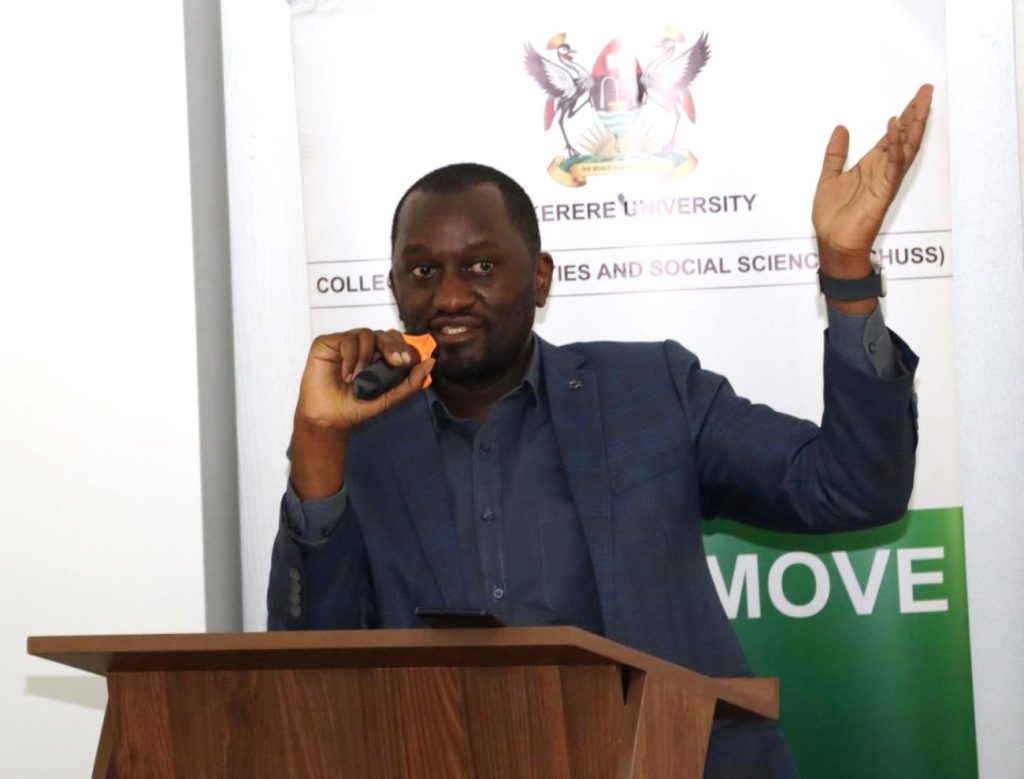
He shared bits of wisdom collected from his own experiences. He spoke of the inevitability of conflict in leadership roles, urging leaders to approach conflicts with a positive mindset, viewing them as opportunities for resolution and growth
With a touch of vulnerability, he opened up about the loneliness that often accompanies leadership positions. “It’s not easy,” he admitted, “to make tough decisions and stand by them.” But he offered reassurance that in the face of solitude, there lies an opportunity for leaders to make a positive impact through their actions.
The University Secretary spoke of failure as a natural part of the leadership journey, urging leaders to embrace setbacks as stepping stones to success. He reminded the audience that time is finite, urging leaders to make the most of their tenure by prioritizing effective time management and delegation.
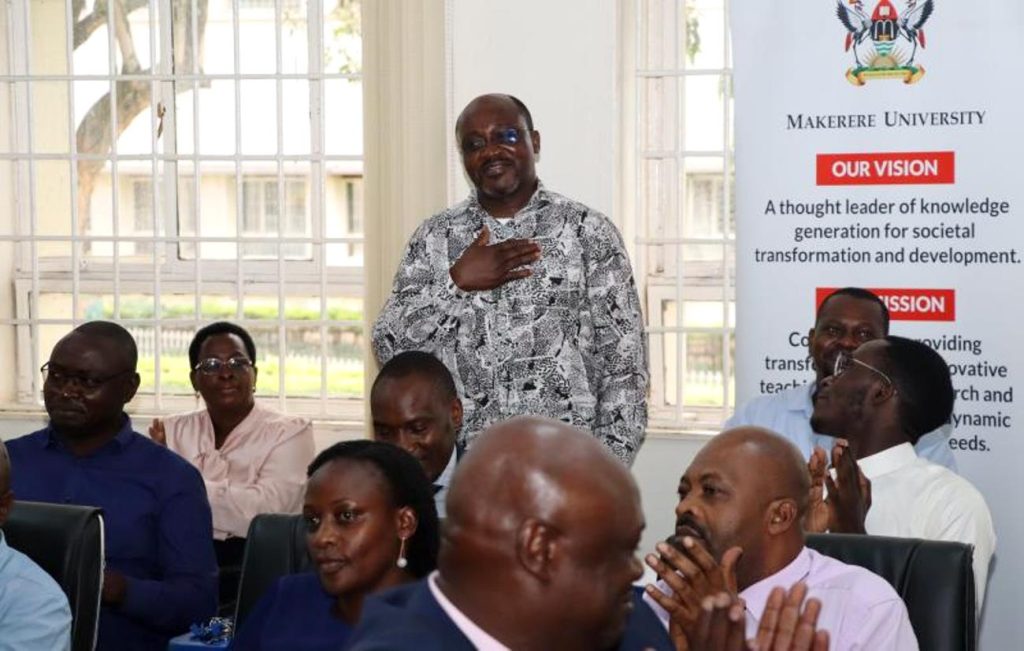
The Secretary emphasized the importance of self-care and the acceptance of feedback in maintaining effective leadership. With genuine warmth, he expressed gratitude for the exemplary leadership of outgoing Principal Ahikire, promising continued support for CHUSS under its new leadership.
He expressed his confidence in the future of CHUSS, reaffirming the collective commitment to excellence and growth at the institution.
Director Human Resource Grateful for Ahikire’s leadership says, Change is Inevitable
Represented by Makubuya Godfrey, the Director Human Resource Makerere University guided on the need to appreciate that change is inevitable.
“In a leadership, things happen for a cause. And once they do, then the leaders have to accept because God is in between whatever is happening, either for or against. So as this has happened, that change is coming and we are glad it’s coming, you know, we know at a given time it will happen”,
The Director appreciated Professor Ahikire for her service to the university.
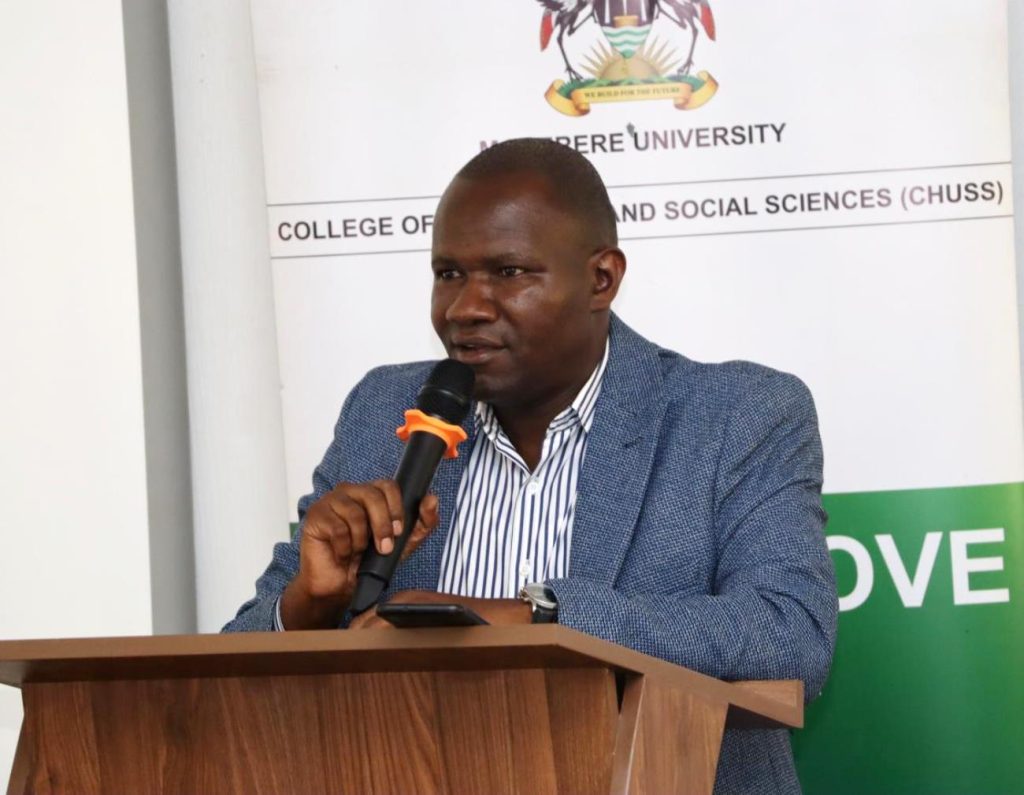
“She has served us for quite some time. And we are very grateful for that leadership. You know, she served even before a deputy principal, acted as Principal and became principal. We are grateful that God provided you that opportunity to offer yourself and the leaders at the time. So, an opportunity is now here that she has to hand over to another leader”. he noted.
As an outgoing principal, Makubuya believed many of the staff had interacted with Prof. Ahikire at different levels and shared a lot.
“And, Professor Nkabala, we welcome you to this college. Of course, it’s not new to you, but in leadership of the college. And it’s our pledge that actually we will work with you to take the college and our university in the right direction”. He added
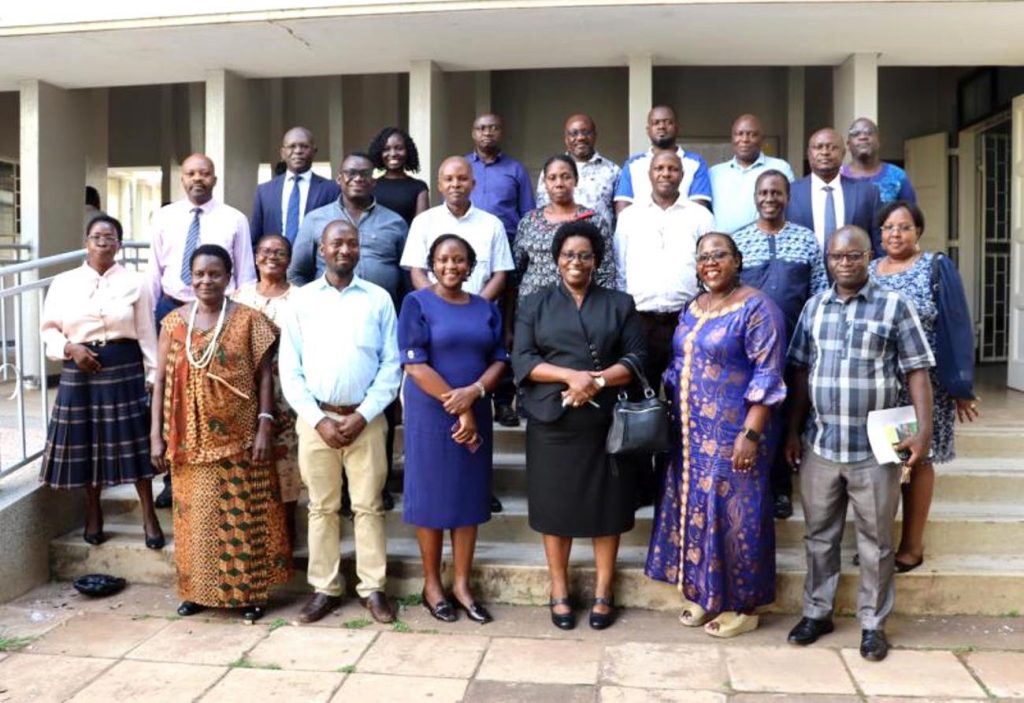
Trending
-
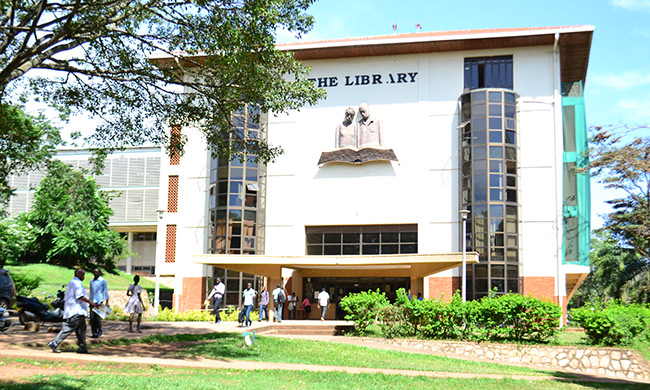
 General1 week ago
General1 week agoDiploma/Degree Holders Admission Lists 2024/25
-
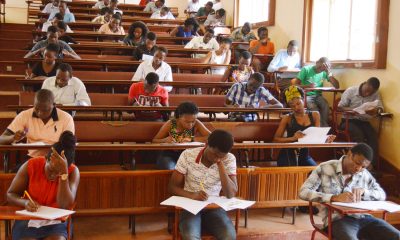
 General1 week ago
General1 week agoAdvert: Mature Age Entry Scheme – Private Sponsorship 2024/2025
-
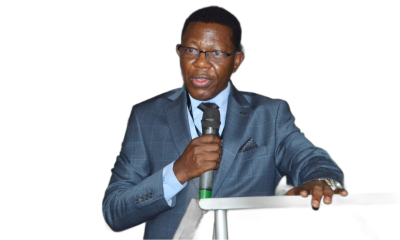
 General5 days ago
General5 days agoProf. Buyinza Mukadasi Appointed Acting DVC Academic Affairs
-

 General2 weeks ago
General2 weeks agoAfrican Futures Research Leadership Program: Cohort 5 – Call for Scholars
-
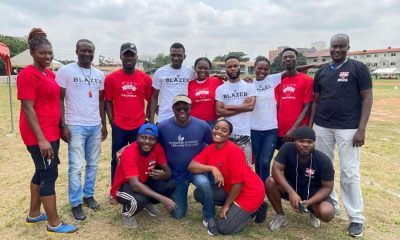
 General2 weeks ago
General2 weeks agoNow Open: CADFP Project Requests
